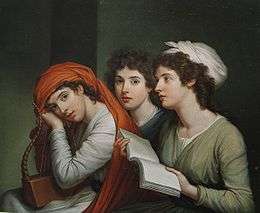Devin (name)

The male or female name Devin is pronounced DEV-in. It is of Irish and Gaelic origin, and its meaning is most commonly given as 'bard' or 'poet'. The name may also be spelt Devan, Deven, and rarely Devyn. The name Davinia may also be a female variant of Devin, though generally considered a variant of David.
French connotations
The epithet Devyn in Old French carried the meaning of 'divine' (Mod. Fr. divin). It was given to the highest of kings, as a title conveying the sense of a perfect or flawless being. A descendent of the Latin dīvīnus, Old French devin ultimately derives from the name of the Proto-Indo-European god Dyēus (q.v.), followed by the Greco-Latin suffix -īnus: thus a combined meaning of 'godlike' or 'godly'.
In Modern French, devyn refers to a man who divines; a soothsayer (a female soothsayer would be a devineresse). This sense, again, comes from the Latin dīvīnus, while Old French devin (Godly) has shifted to the modern 'd i v i n' spelling. Devyn is also of Indian (Hindu) origin meaning "resembling a God"
People named Devin
- Devin Alexander, chef and media personality
- Devin Copeland, rapper who uses the stage name Devin the Dude
- Devin Funchess, NFL player
- Devin Harris, NBA player
- Devin Hester, return specialist for the Atlanta Falcons
- Devin Kelley, actress
- Devin Lima, member of pop trio LFO
- Devin Lytle, member of Team StarKid
- Devin McCourty, NFL Player
- Devin Meyer, former manager of The Beatles
- Devin Horwitz, producer/owner of record label Nature Sounds
- Devin Oliver, member of the electronicore band I See Stars
- Devin Ratray, actor
- Devin Alexander (D.A.) Sebasstian, singer-musician of the band Kill Switch...Klick, Writer & Director of Rat Rod Rockers! and Hot Rod Girls Save The World
- Devin Setoguchi, hockey player
- Devin Smith (basketball), basketball player
- Devin Smith (American football), American football player
- Devin Sola, bassist of Motionless in White
- Devin Tait, former member of the rock/new wave band Shitting Glitter
- Devin Thomas, NFL player
- Devin Toner, Irish rugby union player.
- Devin Townsend, musician
- Devin Tyler, CFL player
- Devin Weston, Character of GTA V